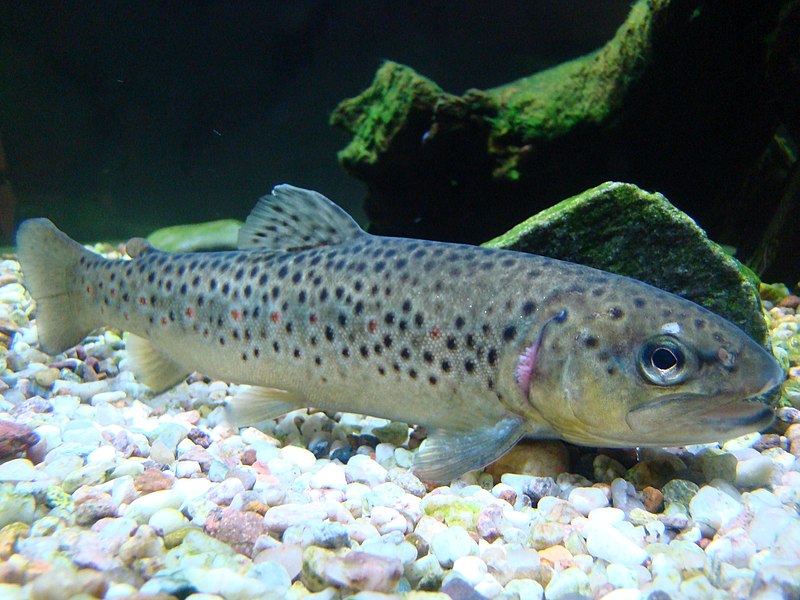
Category Archives: Cichlid Aquariums
Feed SubscriptionSetting a Tank Up for Mbuna – Rock-Dwelling Cichlids of Lake Malawi
 Hey out there! This time around I’d like to talk about setting up a tank for Mbuna, or “rock dwellers”. You can find these colorful fish in the any of the three rift lakes of Africa, but for this blog we will talk about the preferences of species from Lake Malawi.
Hey out there! This time around I’d like to talk about setting up a tank for Mbuna, or “rock dwellers”. You can find these colorful fish in the any of the three rift lakes of Africa, but for this blog we will talk about the preferences of species from Lake Malawi.
First, the tank. Larger is better for a couple reasons. A 55 gallon is nice, but a 75 is better for these fish, with its 18 inch width. narrow tanks can be a pain since you’ll want a lot of rock for these fish. The second reason would be that the more room you give them the easier it will be to control aggression. I was once told that if you crowd these fish, they wouldn’t be as aggressive, not being able to single out others to target and bully. I have seen Mbuna tanks with 12 to 20 fish dwindle down to 4 to 5 fish due to dominant fish. I think it depends on the species and particular fish that you’re trying to house together more, and I don’t think crowding is ever good advice. Last but not least, the larger the tank the more choices you have when it comes time to choose livestock. Read More »
Four of a Kind – Our New Batch of Rhamphochromis
 The thought of a freshwater counterpart to the stealthy marine barracuda is just awesome to me. There are several fish called freshwater barracuda, but in the world of cichlids, Rhamphochromis fits the bill. So, I tend to get excited when I hear anything about Rhamphochromis, especially when they arrive in the store. I’ve never kept these fish, but I can see them in my future. Here are some things you may want to know if you’re as intrigued as I am. Read More »
The thought of a freshwater counterpart to the stealthy marine barracuda is just awesome to me. There are several fish called freshwater barracuda, but in the world of cichlids, Rhamphochromis fits the bill. So, I tend to get excited when I hear anything about Rhamphochromis, especially when they arrive in the store. I’ve never kept these fish, but I can see them in my future. Here are some things you may want to know if you’re as intrigued as I am. Read More »
Setting Up an Aquarium for Victorian Cichlids
 Victorian Cichlids have to be some of the best looking cichlids, right behind those gorgeous fish from Lake Malawi. The majority of the vics that are found in the local pet shops tend to be very easy to breed, some which may rival the prolific habits of the convict cichlid. Creating a set-up that will facilitate successful spawning is not difficult, and you’ll be rewarded with beautifully colored fish and lots of babies to raise, sell, or swap.
Victorian Cichlids have to be some of the best looking cichlids, right behind those gorgeous fish from Lake Malawi. The majority of the vics that are found in the local pet shops tend to be very easy to breed, some which may rival the prolific habits of the convict cichlid. Creating a set-up that will facilitate successful spawning is not difficult, and you’ll be rewarded with beautifully colored fish and lots of babies to raise, sell, or swap.
The first thing to consider is the tank size. If you’re creating a community cichlid tank, a 55 gallon is the minimum that I would recommend. This should be enough space to house 6 to 10 four inch fish (though large tanks will give them more space to create territories). Chances are you’ll see both males and females in a group that size as well. If you’re looking specifically to breed your fish, a 29 or 30 gallon tank will work for a group of 1 male and 2 or 3 females. Read More »
Study Reveals that Fishes Have Distinct Personalities – Research Update

Aquarium Fish with Personality
Aquarists learn early-on that individual fish react very quickly to changes in their environment, and that not all do so in the same manner. Even the universal tendency of aquarium fishes to move towards the glass in anticipation of food when someone passes by is not usually shared by every tank inhabitant (this is actually a quite interesting bit of learned behavior – after all, fishes that rushed out to “greet” large beasts would not last long in the wild!). Read More »
 That Fish Blog – Aquarium Advice and Information
That Fish Blog – Aquarium Advice and Information
